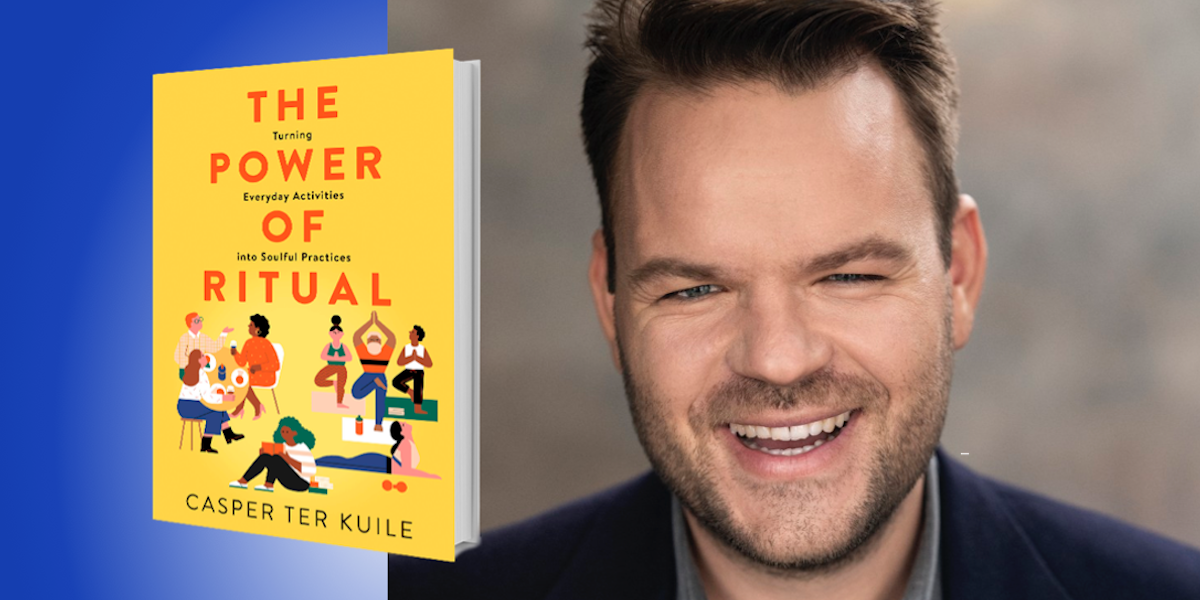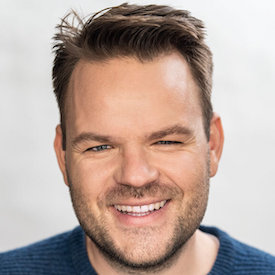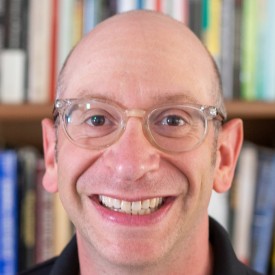Casper ter Kuile is the co-host of the award-winning podcast Harry Potter and the Sacred Text, a Ministry Innovation Fellow at Harvard Divinity School, and co-founder of startup Sacred Design Lab. His work has been featured in the New York Times, Boston Globe, Vice, The Atlantic, Washington Post and on PBS.
Below, Casper shares 5 key insights from his new book, The Power of Ritual: Turning Everyday Activities into Soulful Practices. Download the Next Big Idea App to enjoy more audio “Book Bites,” plus Ideas of the Day, ad-free podcast episodes, and more.
1. Traditional structures of American religion and community are declining.
To put it simply, more and more people are becoming less and less religious. In survey after survey, we’re seeing that when people are asked what religious identity they have, more and more people are ticking the “none of the above” box. At this point, 40% of millennials say that they’re nothing in particular, and that number is likely to grow for Gen Z.
All of that has a big impact on religious institutions. It’s estimated that 3,500 churches in America close every year. And we’re seeing a direct impact on our experience of loneliness. Loneliness is up. More people are anxious, they feel like they have fewer people to talk to about things that are meaningful in their life, and all of that has a direct impact on our health. Scientists now estimate that loneliness has the same impact on our mortality as smoking 15 cigarettes a day, or being clinically obese. So the loss of traditional structures of community and the loss of congregations is having a real impact on our physical, mental, and spiritual well-being.
2. Spiritual communities are rising up in unexpected places.
While we’re seeing a decline of traditional structures of American religion and community, a new landscape of meaning-making communities is growing. Think of the rise of boutique fitness groups, like SoulCycle or CrossFit—the way in which members get together for drinks on Friday night, or look after one another’s pets if someone goes on a holiday. At CrossFit, there are talent nights and CrossFit games where the faithful gather once a year for a big Olympic-style celebration.
“Loneliness has the same impact on our mortality as smoking 15 cigarettes a day.”
In our research, we’ve seen more and more secular communities like these fitness groups do things that you would expect to see in a religious congregation—things like raising money for each other, accompanying one another through a cancer diagnosis, and campaigning for better local public housing. Grief and loss groups get together. Online communities form to share the experience of a debilitating illness. And fandom communities use the stories that they love to activate them in the real world around different social justice issues.
3. Religion isn’t about belief—it’s about practice.
In America, our understanding of religion is profoundly shaped by the Protestant tradition. Following Luther, we have this sense that to be religious means to believe in God or to believe in something. Now that’s part of it, of course, but when you look beyond Protestantism—whether it’s Judaism, Hinduism, or even Catholicism—you start to see how practice is absolutely at the center of these traditions. Whether it’s about eating a certain diet, venerating elders and ancestors, or observing certain times like the Sabbath, each of these embodies a way of being, and adheres to a faith tradition that goes beyond belief.
When we expand our understanding of religion to focus on practice, suddenly what we see in America is not that people are becoming less religious. It’s just where they’re doing religion that is changing.
“With intention, attention, and repetition, you can take an everyday habit and deepen it so that it becomes a meaningful ritual in your life.”
4. Look to your habits to find your rituals.
Many of us who are religious will have a life full of ritual, through both individual practices and communal celebrations. But for those of us who sit outside of religious traditions, who might describe ourselves as agnostic, or perhaps spiritual but not religious, we can find the practices that are meaningful to us, and ritualize them so that they become the foundation of our spiritual life. For example, you might have habits already in your everyday life that feel a little bit like a ritual: sitting down for dinner together as a family, an evening walk with your partner, or putting your kids to bed. Perhaps it’s a creative practice, like dancing, singing, journaling, or painting. Each of these is an invitation into a deeper spiritual life if we consider them a ritual.
Here are the three things you can do to turn a habit into a ritual:
First, bring an intention to it. You might want to connect more deeply with the world around you, for example, or find gratitude or rest.
Second, learn to pay attention during the practice. This is where multisensory things can be helpful. Find a way for it to smell nice, or to look beautiful, or to hear something that helps you keep your attention present while you’re doing the ritual.
Finally, repeat it over and over again. With intention, attention, and repetition, you can take an everyday habit and deepen it so that it becomes a meaningful ritual in your life.
“Rather than seeing this rest as a time of preparation or rejuvenation for the work week, I now understand the work week to be in service of this time of rest.”
5. What we practice, we become.
It’s easy to think of rituals as something nice to have, something simply pleasant or decorative, but in fact, rituals help us become the kind of person we want to be. If we’re not intentional about choosing what rituals we want, it’s easy for us to be shaped by the rituals the world gives us: the endless ritual of completing an Inbox Zero, for example, or working so hard that we hope that, one day, we’ll feel good enough.
Rituals help us enter into a different frame of mind; each ritual can be like a little bridge that we cross into a different way of thinking. For example, I practice a tech Sabbath on Friday night. I turn off my phone and laptop, and I light a candle. I sing a little song to myself as I stare out the window at the setting sun, and I enter into a time of rest.
Rather than seeing this rest as a time of preparation or rejuvenation for the work week, I now understand the work week to be in service of this time of rest. As the great Jewish theologian Abraham Joshua Heschel teaches us, rest is the taste of heaven. The Sabbath is a moment in which we go beyond the everyday and have a taste of the eternal. He describes it as a palace in time.
These rituals shape us and the world around us so that we are not just a cog in a productivity machine, but sacred, beloved beings, perfect in our imperfection.
For more Book Bites, download the Next Big Idea App today:

































